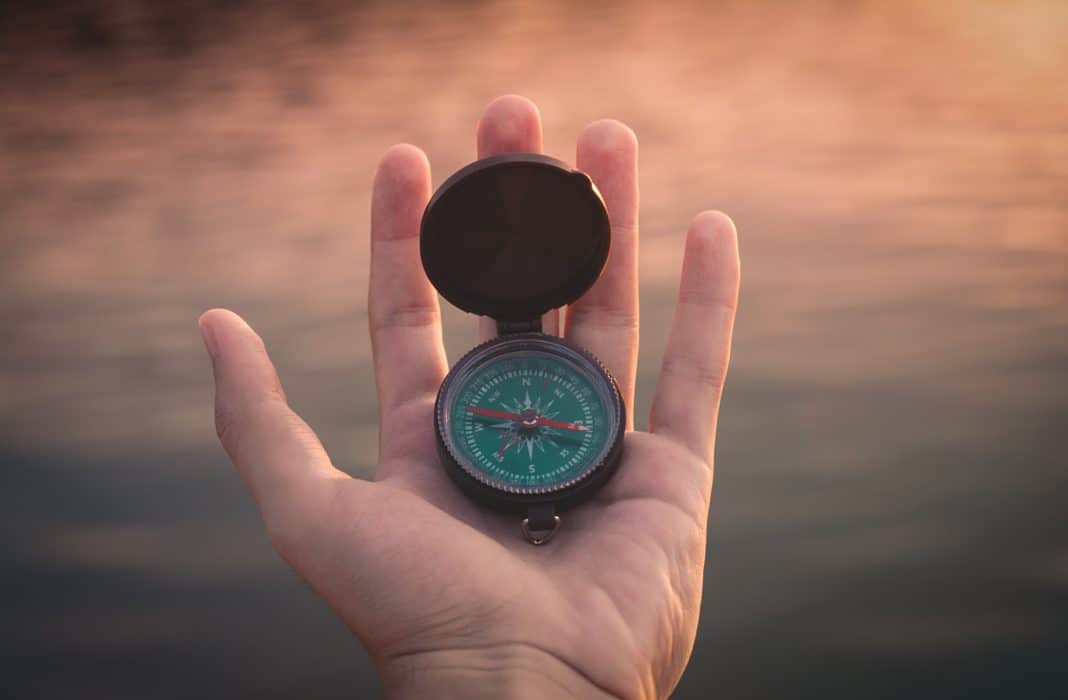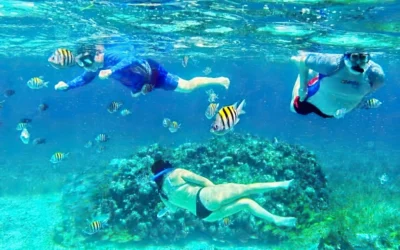- Carry a well-stocked first-aid kit for cuts, burns, infections, and basic medical needs—safety is paramount in the wilderness.
- Bring extra food and at least one extra day’s water plus a reliable filter/purifier to prevent dehydration and hunger emergencies.
- Pack essential navigation, light, and weather gear—map and compass, flashlight/headlamp with batteries, and waterproof layers.
This Camping Checklist Features the Easily Forgotten Items that Campers, Hikers, Climbers, and Outdoor Adventurers Need to Remember to Pack
So, you are preparing your camping checklist. You intend to pack all the luxuries (and you are super excited about it), including the marshmallows for roasting, the books for reading, the journals for doodling, the cards for playing, the cameras for photographing, and the hot chocolate for enjoying. We love these items just as much as you do. By all means, pack away! However, in the midst of packing for the fun, there are many essential items that you have to remember to take along with you.
We have found that there are 12 essentials that travelers need to take on any camping trip. It doesn't matter if you are car camping or pitching a tent for the night in the backcountry. When it comes to exploring the wilderness, being prepared for the worst is key. This checklist will help you prepare for anything that could possibly happen when on your trip.
Camping Checklist
Clothing, food, and water are obvious items to pack when in the mountains, but there are other items, such as the ones on this list, that aren't as obvious. As you have heard time and time again: Safety first. You may not end up using these items on your camping adventure, but having them on hand is critical no matter where you lay your head to rest outdoors. Without further ado, here is the Trekbible Camping Checklist. Be sure to stuff all of these items into your bag before setting off on any outdoor adventure. Whether you are hiking, climbing, or camping in the woods, you don't want to forget anything on this camping checklist.
1. First-Aid Supplies
For bumps and bruises and burns and scratches and cuts, having a first-aid kit with you at all times while camping is a must. It's basically Camping 101 to carry first-aid supplies with you on any and every journey into the wilderness. Whether you are doing for a day hike or camping in the woods for multiple days, the outdoors can be unpredictable. Therefore, first-aid supples are the most important and essential items to have on you.
Campers can purchase a prepackaged first-aid kit, or make their own (DIY style). If you are going the DIY route, then some basic emergency essentials to have in your kit include antibacterial ointment, antiseptic wipes, gauze pads, medical adhesive tape, various sizes of adhesive, bandages, tweezers, safety pins, small scissors, and pain-relief medication. Hand sanitizer is another item to have in your kit or in a separate, yet convenient location.
2. Extra Food
The rule of thumb when camping is to pack at least one extra day's worth of food. These items don't have to take up a significant amount of space or weigh down your pack. Opt for small, lightweight food items that can give you the nutrition you need. Protein bars, dried fruit, nuts, and our personal favorite, a jar of peanut butter, are great no-cook items to have with you. Peanut butter's long shelf life makes it an ideal item to take on any outdoor expedition. Put a dollop or two in your morning oatmeal, smear some on a slice of bread, pair it with an apple, banana, or dates, or (the best option in our biased opinion) enjoy it by the spoonfuls.
3. Extra Water
When it comes to water in the wilderness, the rule of thumb is to always carry at least 1 water bottle and collapsable water reservoir with you. Campers should also have a filter/purifier to treat the water or carry a chemical treatment to clean the water. If you are looking for a water bottle that has a built-in filtration/purification system, then check out the Grayl Ultralight water bottle. This bottle treats any freshwater source in 15 seconds.
Before setting off on your camping trip, it will be necessary to identify the water sources nearby your campsite. Whenever you leave one water source, be sure to fill your water bottles and water reservoirs completely before changing locations. You never know how long you will have to go before finding more water. And the last thing you want is to be dehydrated in the wilderness. This is especially important in the winter, when people tend to not drink as much water because of the cool outdoor temperatures. You can still become dehydrated in the cold, so keep replenishing your water supply.
4. Map and Compass
Your smartphone may have a GPS, but you cannot rely on cell service while camping. A navigation system needed to be on our camping checklist because it is absolutely essential for any outdoor trip. A map and compass speak for themselves. To know where you are and where you are going, these items can navigate you through the mountains, to water sources, a back to your campsite with no problems. When looking for what compass to purchase, we highly recommend purchasing on with a sighting mirror. In emergency situations, the sighting mirror can be used to reflect sunlight and get the attention of a helicopter.
5. Sun Protection
Protect yourself from the sun's harmful rays on your camping trip. Wear sunglasses and sunscreen that block both UVA and UVB rays. Should you be camping in the heat of summer, make sure that your sunscreen is water/sweat-resistant and remember to reapply often.
6. Flashlight
At night, there is no question that you will need a flashlight. When your fire begins to dwindle to a halt and the darkness of night surrounds you, a flashlight will be necessary for when you stumble to the bathroom, tell ghost stories, and prepare a midnight snack. Campers can either bring a handheld flashlight, a lantern, or a headlamp. Pack whichever you prefer. Just remember to bring some type of light with you. And extra batteries.
7. Insect Repellant
While you are in the woods, the bugs will be out. You are, after all, wandering through their home. In the evenings once the sun goes down, the mosquitos will be all the more alive. They will be scoping out who is the sweetest person in your camping group. Therefore, insect repellant needs to be on your camping checklist. When choosing an insect repellent, the most effective lotions and sprays are those containing DEET. However, if you are wary of the harsh chemicals found in DEET products, then you can opt for a strong and effective insect repellant that does not contain DEET.
8. Pocket Knife
A pocket knife will come in handy more times than you expect while camping. Plus, it will take up virtually no space in your bag or pocket. From food prep to making kindling and repairing gear, a pocket knife will constantly be coming to your rescue. Don't forget to pack this item.
9. Alternative Weather Wear
Weather is unpredictable. It always is and always will be. To avoid getting stuck in the rain because you weren't prepared and to avoid getting frostbite because you didn't pack enough layers, be sure to bring extra alternative weather wear. A rain jacket will be necessary, as well as extra layers for when cold fronts hit.
Think about the worst weather conditions that could strike during your trip. This will be dependent on the season you are in because, obviously, snow will not come down during your July camping trip in Colorado. That said, consider the time of year of your trip, and pack whatever may be necessary to stay warm, protected from the sun, and shielded from the rain and bugs.
10. Fire Supplies
Unless you know how to start a fire the old-fashioned way by rubbing two sticks together, packing waterproof matches and/or a small lighter will be necessary for starting fires on your trip. A campfire is essential for cooking food, roasting marshmallows, and warming cold hands and toes in the evening. Travelers can also pack firestarters with them so they can quickly jump-start a fire.
11. Tarps and Ropes
Tarps and ropes both have many uses. Tarps can be used for protection and extra shelter at your campsite. Rope can be hung to create a clothesline, secure your food in a tree so bears don't eat it, and so much more. Campers will find themselves getting creative with how to use these items while outdoors. Make sure at least one tarp and a handful of ropes are on your personal camping checklist.
12. A Watch
Don't rely on your cell phone to tell you the time. Cell phones can lose their charge all too quickly. Plus, though we hope this does not happen, your phone may get water damage and die for good. In the spirit of being prepared for anything, bring a waterproof watch with you on your camping adventure. When an unexpected downpour comes your way or you spot a waterfall that you want to run under, you won't have to worry about damaging the battery on your watch.
Some people scratch the watch altogether, deciding to instead tell time by the placement of the sun. If you are one of those people that really want to get off the grid and not be consumed with telling time on your trip, then, of course, you don't have to bring a watch. This is one item on the camping checklist that isn't essential (depending on who you are).
Happy Camping!
There you have it. The camping checklist of commonly forgotten items. If you are an avid camper, share some of your camping essentials in the comments section below!
Related Article: Best Sleeping Bags For This Year’s Adventures

















